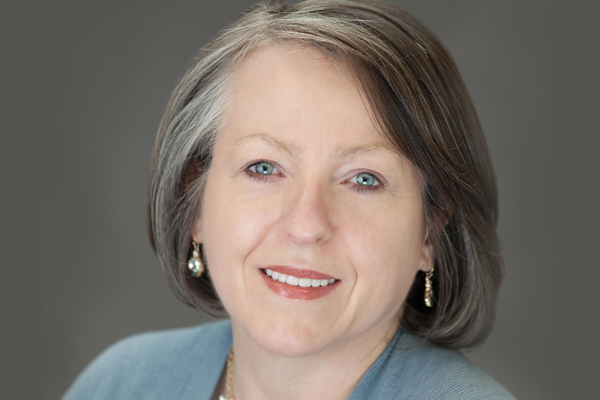When Angela Novas, M.S.N.'14, was assigned to work at the British Embassy in Washington, D.C. 32 years ago, she could have never imagined that she would one day be the chief medical officer at the Hospice Foundation of America (HFA).
“I had always enjoyed meeting new people and experiencing new cultures as a foreign service officer,” she says. “So perhaps it was a forgone conclusion that I would end up in a people-focused and service-oriented field.”
As someone who prides herself on being a life-long learner, Mrs. Novas immediately sought out her next opportunity once her diplomatic career came to an end. After working as a medical assistant in a physician’s office, she completed the education and training to become a certified surgical technologist (CST), before enrolling at the University of Maryland and completing her B.S.N.
“Nursing isn’t limiting unless you let it be…there are so many opportunities,” Mrs. Novas explains. Because the sky is the limit, she continued to seek further education and graduated from the George Washington University School of Nursing with her M.S.N. specializing as an adult-gerontology primary care nurse practitioner.
After becoming aware of the need for hospice and palliative care services and the barriers to accessing those services, Mrs. Novas realized her passions aligned with the mission of the HFA. “We really saw the extreme need for public education around end-of-life care during the pandemic,” she explains. “HFA could provide me the chance to educate the public and healthcare professionals nationally about various aspects of end-of-life care.”
Currently, the HFA is working on various special initiatives to raise awareness about caregiver burdens, study advanced care resources in underserved communities, and support those with autism who are grieving.
Throughout her career as an advanced nurse provider, Mrs. Novas has strived to advocate and educate. “At the end of my workday, if I’ve helped improve care in some small way, if I’ve helped two people or 250 people understand what their care options are and how to access hospice care when they need it, it feels like a success,” Mrs. Novas says. “But I also know there is so much more work to do.”


